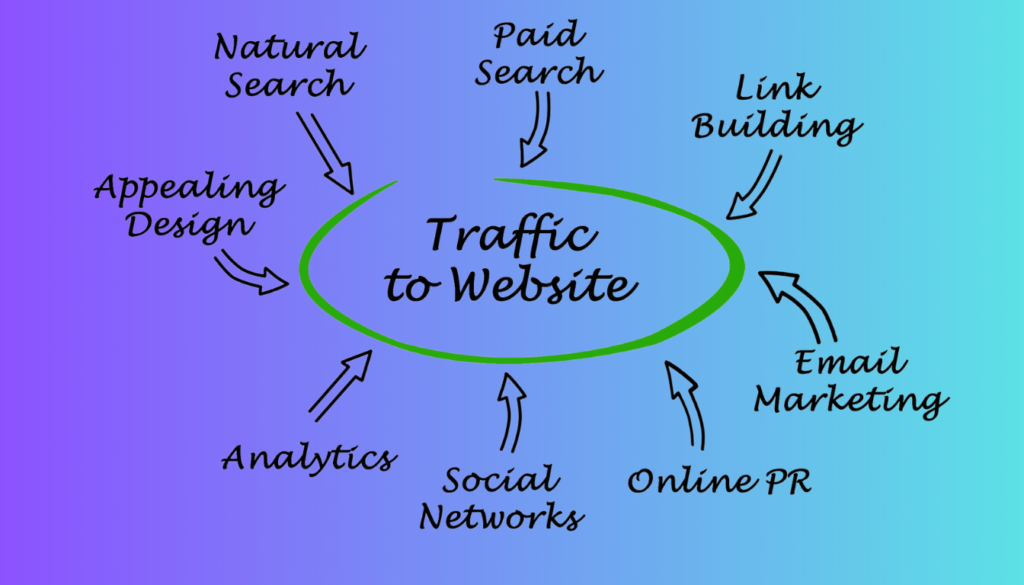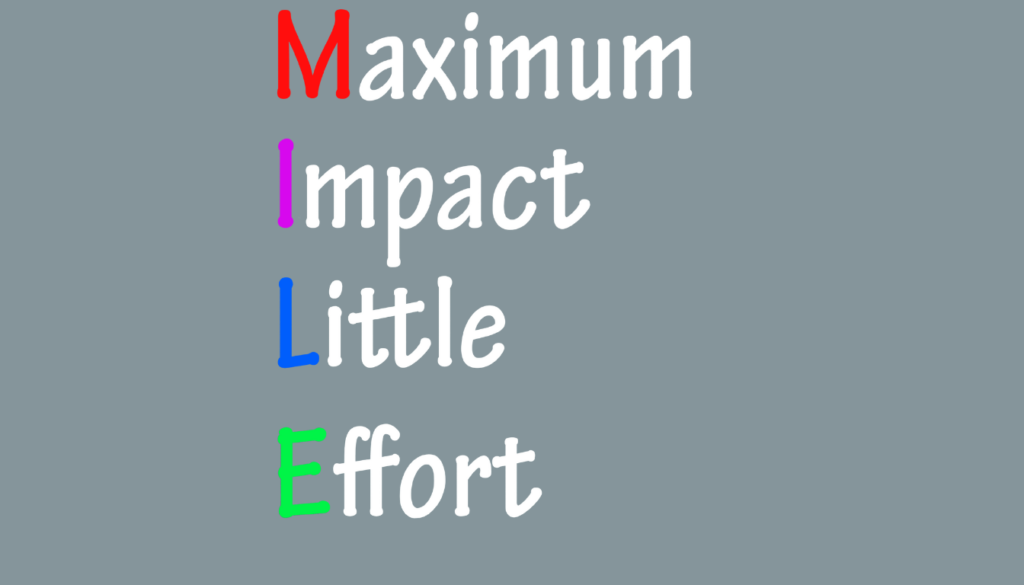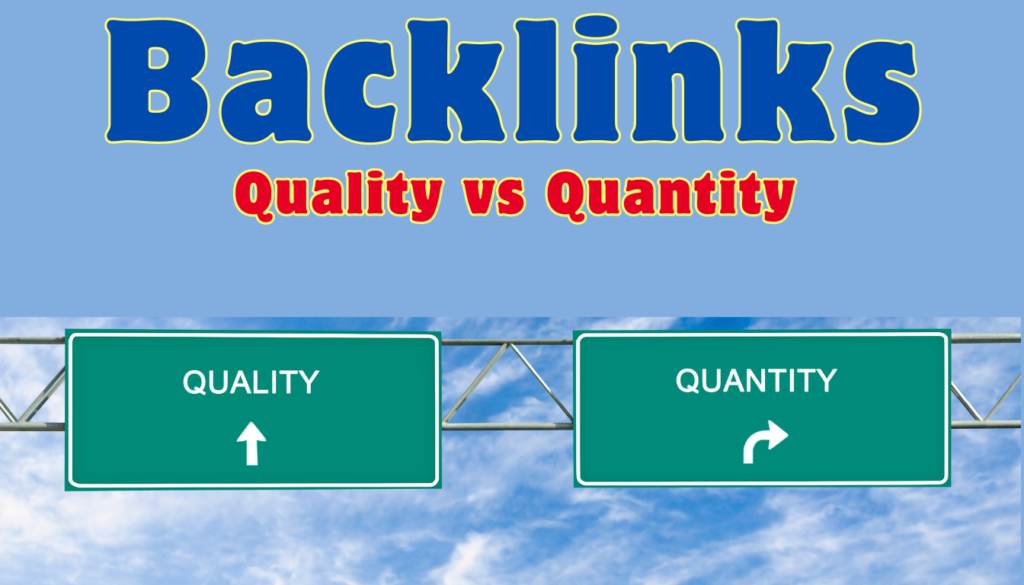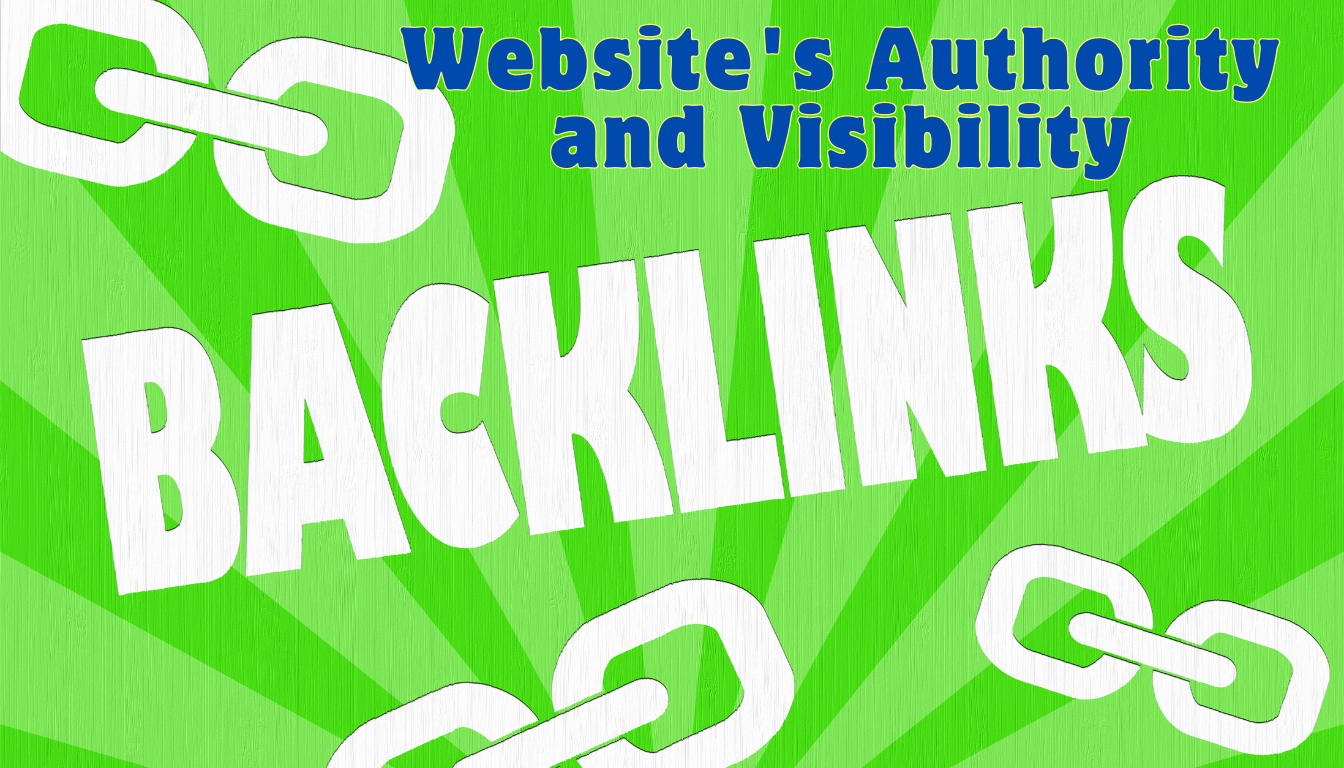Introduction
In the vast and competitive world of the internet, backlinking is an art that can significantly improve your website’s authority and visibility. With the right strategy, you can enhance your online presence, drive more traffic to your site, and ultimately increase conversions. But what exactly is backlinking, and how can you use it to your advantage using website building tools?
Backlinking is the process of getting other websites to link back to your website. These links serve as digital recommendations that signal to search engines that your content is valuable and trustworthy. When reputable websites link to yours, search engines view your website as authoritative, which can result in higher search rankings and increased organic traffic.
Implementing an effective backlinking strategy involves creating high-quality, valuable content that inspires others to link to it naturally. It also requires outreach and relationship building with other website owners and influencers, encouraging them to feature your content and provide backlinks. This process requires finesse, time, and dedication, but the payoff can be immense.
In this article, we will explore the art of backlinking and share valuable tips and techniques that will help you boost your website’s authority and visibility in the ever-evolving digital landscape. Join us as we uncover the secrets to successful backlinking and take your online presence to new heights.
Table of Contents
The Importance of Backlinks in SEO

Backlinks play a crucial role in search engine optimization (SEO) by serving as a vote of confidence for your website. Search engines, like Google, consider backlinks as a strong ranking factor, as they indicate the relevance and reliability of your content. When reputable websites link to yours, it sends a signal to search engines that your website is valuable and should be ranked higher in search results.
Backlinks not only boost your website’s authority but also improve its visibility. When other websites link to your content, it exposes your website to a wider audience, increasing the likelihood of attracting new visitors. The more high-quality backlinks you have, the more opportunities there are for people to discover your website and engage with your content.
How Backlinking impact your website’s authority and visibility

Having a strong backlink profile is crucial for your website’s authority and visibility. Search engines like Google consider backlinks as a vote of confidence from other websites. The more high-quality backlinks you have, the more authoritative your website appears in the eyes of search engines.
Backlinks act as a signal to search engines that your website is trustworthy and reliable. When reputable websites link to your content, it shows that others find your information valuable and worth sharing. This can result in higher search rankings, as search engines strive to provide the most relevant and valuable results to their users.
Additionally, backlinks can drive more organic traffic to your website. When users come across a link to your website on another reputable site, they are more likely to click on it, leading to increased website traffic. This not only improves your visibility but also exposes your brand to a wider audience.
Types of Backlinks
There are three main types of backlinks:

Natural Backlinks
Occur when other websites link to your content without any direct action from you. These are the most valuable type of backlinks, as they indicate that your content is genuinely valuable and worth linking to.
Manual Backlinks
On the other hand, these are acquired through intentional outreach and relationship building. This involves reaching out to website owners, bloggers, or influencers and requesting them to feature your content and provide a backlink. While manual backlinks require more effort, they can be highly effective in boosting your website’s authority.
Self-Created Backlinks
These are links that you create yourself, such as adding your website link to online directories or comment sections. While these backlinks may provide some value, they are generally considered lower quality and should be used sparingly and strategically.
Quality vs. Quantity: Why Quality Backlinks Matter

When it comes to backlinks, quality trumps quantity. While having a large number of backlinks may seem impressive, it’s the quality of those links that truly matters. Search engines prioritize high-quality backlinks from reputable websites over a large volume of low-quality backlinks.
High-quality backlinks come from authoritative websites in your industry or niche. These websites have established credibility and a strong online presence. When they link to your content, it signals to search engines that your website is also trustworthy and deserving of higher search rankings.
On the other hand, low-quality backlinks from spamy or irrelevant websites can actually harm your website’s reputation and visibility. Search engines may view these backlinks as manipulative attempts to artificially boost your rankings, which can result in penalties or even deindexing of your website.
How to Build High-Quality Backlinks
Building high-quality backlinks requires a strategic approach and a focus on creating valuable content. Here are some effective strategies to help you build a strong backlink profile:
Guest Blogging as a Backlinking Strategy

Guest blogging involves writing and publishing articles on other websites within your industry or niche. This strategy allows you to showcase your expertise, reach a new audience, and earn high-quality backlinks. When guest blogging, it’s important to choose reputable websites with a strong online presence and a relevant audience.
To maximize the SEO benefits of guest blogging, ensure that the websites you contribute to allow you to include a backlink to your own website in the author bio or within the content itself. This will not only drive traffic to your website but also improve your website’s authority in the eyes of search engines.
The Role of Social Media in Backlinking

Social media platforms provide an excellent opportunity to promote your content and attract backlinks. By sharing your articles, blog posts, and other valuable content on social media, you increase the chances of others linking to it. Additionally, social media platforms themselves can serve as a source of backlinks, as people discover and share your content with their own followers.
To leverage social media for backlinking, focus on building a strong social media presence, engaging with your audience, and sharing high-quality content consistently. Encourage your followers to share your content and provide incentives for them to do so, such as exclusive discounts or access to valuable resources.
Tools and Resources for Backlink Analysis and Monitoring
To effectively build and manage your backlink profile (understand backlink profile meaning), it’s essential to use tools and resources that provide insights into your backlinks. These tools can help you identify new backlink opportunities, monitor the quality of your existing backlinks, and track your progress over time. There are a number of backlink free tool(s) that can used for different analysis.
Some popular backlink analysis tools include Ahrefs, Moz, SEMrush, and Majestic. You can use any backlink tool research results to make informed decisions. These tools provide valuable data on the number of backlinks, the quality of those backlinks, and the overall health of your backlink profile. By regularly analyzing this data, you can make informed decisions about your backlinking strategy and identify areas for improvement. It is important to note that backlink in website is a valuable asset.
Common Mistakes to Avoid When Building Backlinks
While building backlinks can be highly beneficial for your website, it’s important to avoid common mistakes that could negatively impact your SEO efforts. Here are some common pitfalls to watch out for:
| Common Mistakes | Why to Avoid |
|---|---|
| Ignoring Quality Over Quantity | Prioritizing a high number of backlinks over the quality can harm your SEO, as search engines value relevant and authoritative links more. |
| Using Only One Type of Backlink | Relying on just one backlink type, such as directories, limits the potential SEO benefits. Variety is key. |
| Neglecting Internal Linking | Internal links help distribute page authority and improve site navigation, which is often overlooked. |
| Focusing Solely on Dofollow Links | While dofollow links pass on SEO benefits, nofollow links are also valuable for a natural link profile. |
| Over-Optimizing Anchor Text | Excessively matching anchor text to keywords can appear manipulative to search engines, risking penalties. |
| Forgetting About Relevance | Backlinks from sites unrelated to your content may not contribute to your site’s ranking power. |
| Not Diversifying Link Sources | Links from the same few sites can be less effective than links from a wide range of sources. |
| Skipping the Evaluation of Linking Sites’ Authority | Links from high-authority sites are more beneficial. Ignoring the site’s credibility can result in low-value backlinks. |
The Long-Term Benefits of a Strong Backlink Profile
Improved Search Engine Rankings
Backlinks are a critical factor in how search engines determine the relevance and authority (backlink authority score) of your website for specific keywords or topics. A strong backlink profile, characterized by high-quality and relevant links, signals to search engines that your content is valuable and trustworthy. Over time, this can lead to improved rankings in search engine results pages (SERPs), making your site more visible to potential visitors.
Increased Website Traffic
With improved rankings comes increased visibility, which naturally leads to more website traffic. High-quality backlinks from authoritative sites can also directly refer traffic to your site. Visitors clicking through these backlinks are generally interested in your content, leading to higher engagement rates. This targeted traffic is invaluable for building an audience and generating leads or sales.
Enhanced Credibility and Trust

Backlinks from reputable and relevant sites act as endorsements, enhancing your website’s credibility in the eyes of both users and search engines. Over time, earning backlinks from industry-leading websites can establish your site as an authority in its niche. This trust is crucial for long-term growth, as users are more likely to return to, share, and engage with content from a trusted source.
Competitive Advantage
A strong backlink profile can provide a competitive advantage in your niche. It can be challenging for competitors to replicate a well-established network of high-quality backlinks. This advantage allows your site to maintain superior rankings and visibility, ensuring that potential customers find you first.
Better Indexing and Faster Discovery
Search engines use backlinks to discover new pages and determine their relevance to various topics. A robust backlink profile ensures that search engines can easily find and index your content, making it available to users more quickly. This is especially beneficial for new websites or pages, helping them gain visibility faster.
Network Building and Opportunities for Collaboration
Building backlinks often involves reaching out to other webmasters, bloggers, and influencers in your industry. This process can lead to networking opportunities, partnerships, and collaborations that extend beyond mere link building. Such relationships can be invaluable for cross-promotion, content sharing, and other joint ventures that contribute to long-term growth.
Conclusion
In the ever-evolving digital landscape, backlinking remains a powerful strategy for boosting your website’s authority and visibility. By building a strong backlink profile, you can improve your search rankings, attract more organic traffic, and ultimately increase conversions. It is a valuable tool for website builders.
While building high-quality backlinks requires time, effort, and dedication, the long-term benefits are well worth it. By creating valuable content, leveraging guest blogging opportunities, utilizing social media, and monitoring your backlink profile, you can establish your website as a trusted source of information within your industry.
Remember, backlinking is not a one-time task but an ongoing process. Continuously seek new opportunities to earn backlinks, analyze and optimize your backlink profile, and stay up to date with the latest SEO trends and best practices. With a strategic approach to backlinking, you can unlock the full potential of your website and achieve sustainable online success.
FAQ
What is a backlink?
A backlink is a link from one website to another. Search engines like Google use backlinks as a ranking signal because when one website links to another, it means they believe the content is noteworthy. High-quality backlinks can help to increase a site’s ranking position and visibility in search engine results (SERPs).
Why are backlinks important for SEO?
Backlinks are important for SEO because they signal to search engines that another resource finds your content valuable enough to link to it within their own content. As a website earns additional backlinks, search engines infer that the website possesses valuable content worth ranking well on the SERPs.
How can I get backlinks for my website?
You can get backlinks through various methods such as creating high-quality and shareable content, guest blogging on reputable sites, engaging with your community on social media, and reaching out to influencers or websites to mention or link to your content.
What is the difference between dofollow and nofollow backlinks?
Dofollow backlinks pass on link equity and contribute to the page’s ranking in search results, while nofollow backlinks do not pass on link equity. Nofollow links tell search engines to ignore the link in terms of passing on ranking power, but they can still be valuable for driving traffic and visibility.
How can I check the quality of backlinks?
You can check the quality of backlinks by evaluating the authority and relevance of the linking site, the contextual relevance of the link to your content, the anchor text used, and whether the link is a dofollow or nofollow link. Tools like Ahrefs, Moz’s Link Explorer, and Google Search Console can help analyze your backlink profile.
Are too many backlinks bad for my website?
Not necessarily, but the quality of backlinks matters more than quantity. A large number of low-quality or spamy backlinks can harm your website’s ranking. It’s important to focus on obtaining high-quality backlinks from reputable sites that are relevant to your niche.



